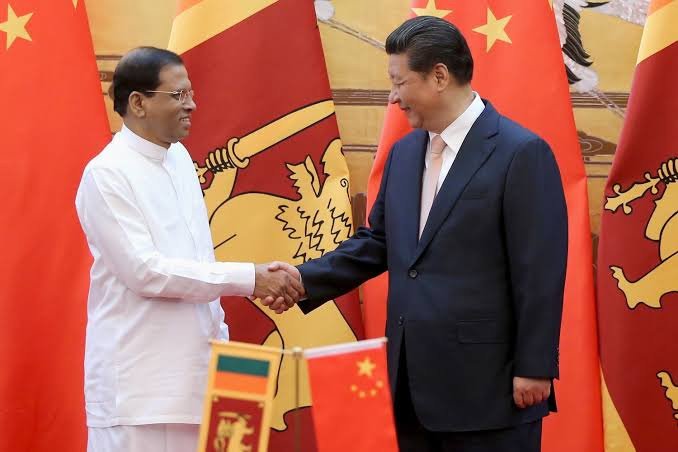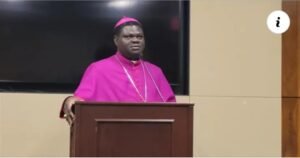Sri Lankan President’s visit to India addresses concerns over China’s growing influence

The President of Sri Lanka, Ranil Wickremesinghe, arrived in India today for his inaugural visit to the regional powerhouse. This visit comes amid mounting concerns in New Delhi over China’s expanding influence in Sri Lanka, a strategically important island nation grappling with severe financial challenges.
Traditionally, newly elected Sri Lankan leaders promptly visit India within weeks of assuming office. However, Wickremesinghe’s trip occurs precisely one year after his presidency began following the removal of his predecessor during an unprecedented economic crisis. As Sri Lanka faced escalating turmoil with daily street protests due to shortages of food, fuel, and medicine, India provided substantial aid, amounting to nearly $4 billion, to restore essential supplies and stabilize the island.
These financial assistance packages and credit lines were granted despite Sri Lanka defaulting on its $46 billion foreign debt, resulting in its exclusion from international financial markets. Political commentator Victor Ivan acknowledged India’s pivotal role, stating, “Without India’s help, Sri Lanka could have descended into anarchy.” He further emphasized the need for the Sri Lankan president to express gratitude and assure India that their interests will not be compromised while acknowledging China’s economic importance to Sri Lanka.
China currently serves as Sri Lanka’s largest bilateral creditor, and in a prominent development, a Chinese company obtained a 99-year lease on the Hambantota port after Colombo failed to repay a significant loan from Beijing used to construct the port. Additionally, a $1.4 billion land reclamation project adjacent to the Colombo port, representing the largest foreign investment in Sri Lanka to date, has raised concerns in India that China might utilize it as a listening post. Originally, a portion of this project was intended to be designated as Chinese sovereign territory.
Given its geographic location, Sri Lanka lies halfway along the primary international shipping route connecting Europe and East Asia, with Colombo and Hambantota serving as the only deep-sea ports between Dubai and Singapore. New Delhi considers this region to be within its sphere of influence and has expressed apprehension about China’s activities.
China’s Belt and Road Initiative has led to various infrastructure agreements with countries in the Indian Ocean, including the Maldives, Bangladesh, and Djibouti, where China has established a military base. India raised concerns when a Chinese research vessel, Yuan Wang 5, sought permission to dock at Hambantota in August. Despite India’s objections, the port call proceeded, leading Sri Lanka to request that China refrain from conducting any “scientific research” while in Sri Lankan waters. Experts, such as local political columnist Kusal Perera, believe that this incident is an isolated occurrence and will not significantly impact the overall relationship between Sri Lanka and India. Furthermore, Indian businesses are actively seeking to expand their presence on the island.
During his recent visit to France, President Wickremesinghe addressed India’s fears by dismissing speculation about the establishment of Chinese military bases in Sri Lanka. He stated that Sri Lanka has no military agreements with China and emphasized the country’s neutrality. However, he also asserted that Sri Lanka would not allow its territory to be used as a base for any threats against India.
President Wickremesinghe’s visit marks the fourth time a Sri Lankan president has been hosted by Indian Prime Minister Narendra Modi. Wickremesinghe, who was elected by parliament to complete the remaining two-and-a-half years of former President Gotabaya Rajapaksa’s term, has often been viewed with suspicion by the Indian establishment due to his pro-Western United National Party.
Among the key agenda items for the visit, a senior diplomatic source highlighted discussions on debt restructuring and accelerating infrastructure projects that have faced bureaucratic delays. Sri Lanka is currently seeking approval from all its creditors, including India and China, for a debt restructuring plan, which includes proposed haircuts of up to 30% and a repayment freeze of up to nine years. In September, the second tranche of approximately $330 million from a $2.9 billion IMF bailout is expected, contingent on Colombo reaching an agreement with its lenders. President Wickremesinghe expressed confidence that China would support the debt restructuring plan, enabling Sri Lanka to unlock the remaining funds from the IMF bailout. In October, he is scheduled to travel to China for the first time since assuming the presidency.







